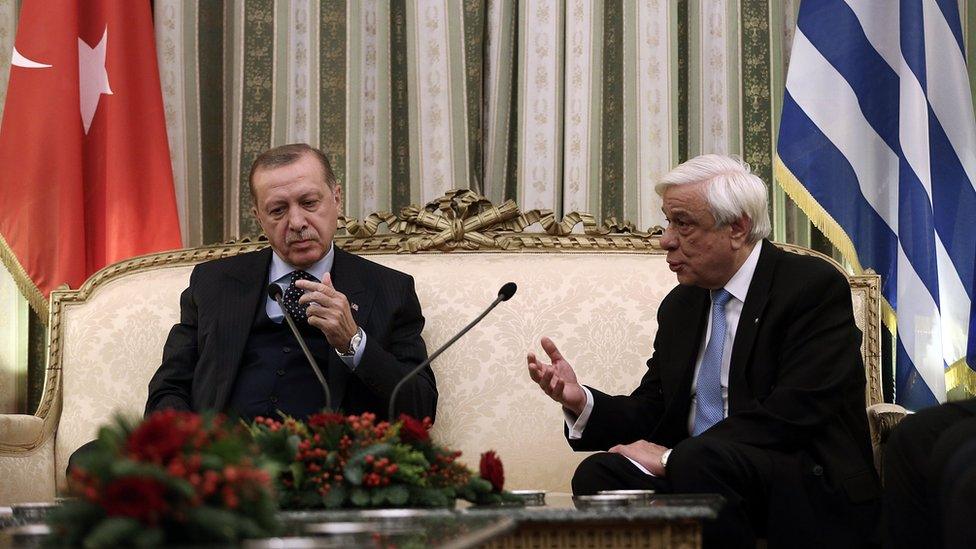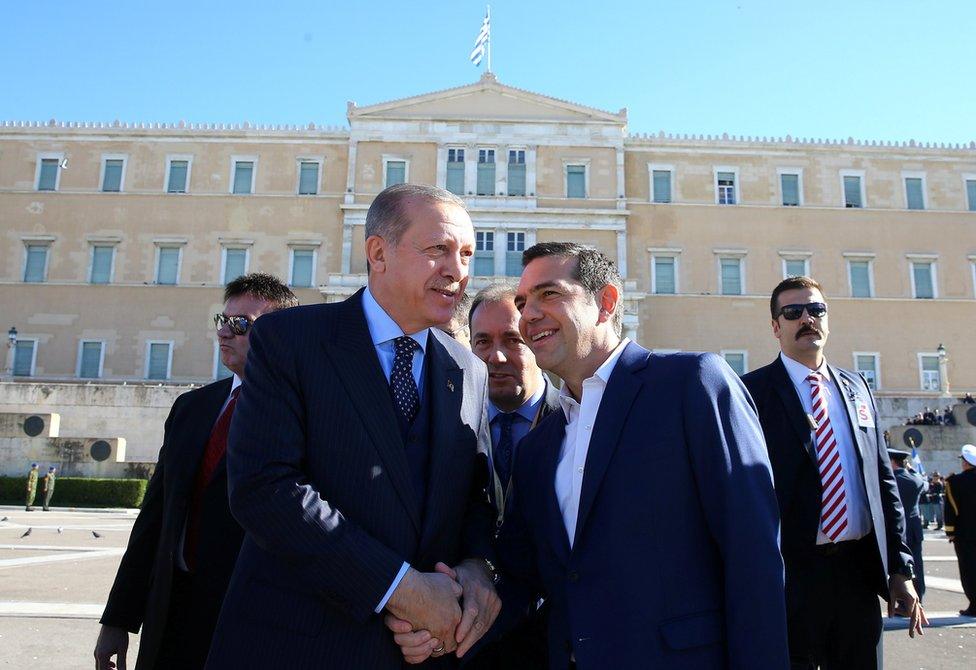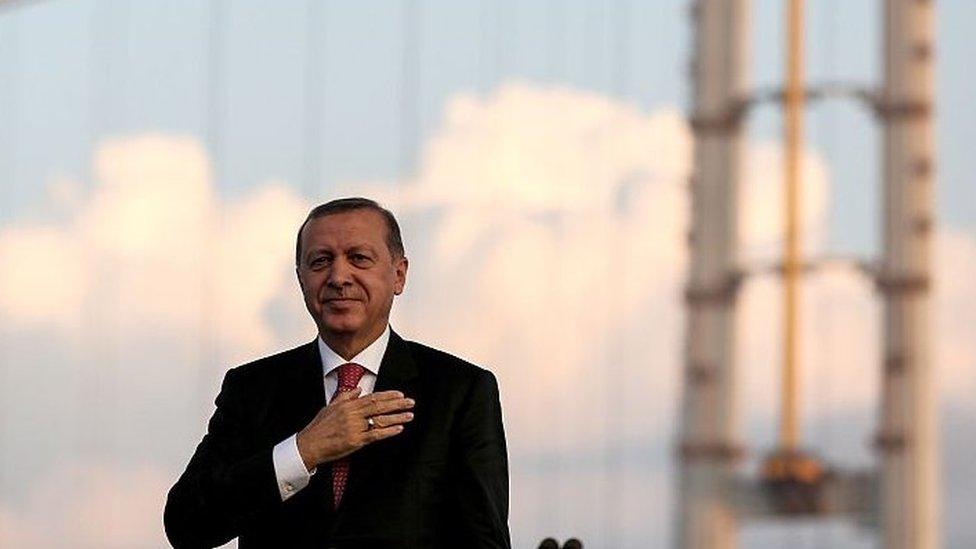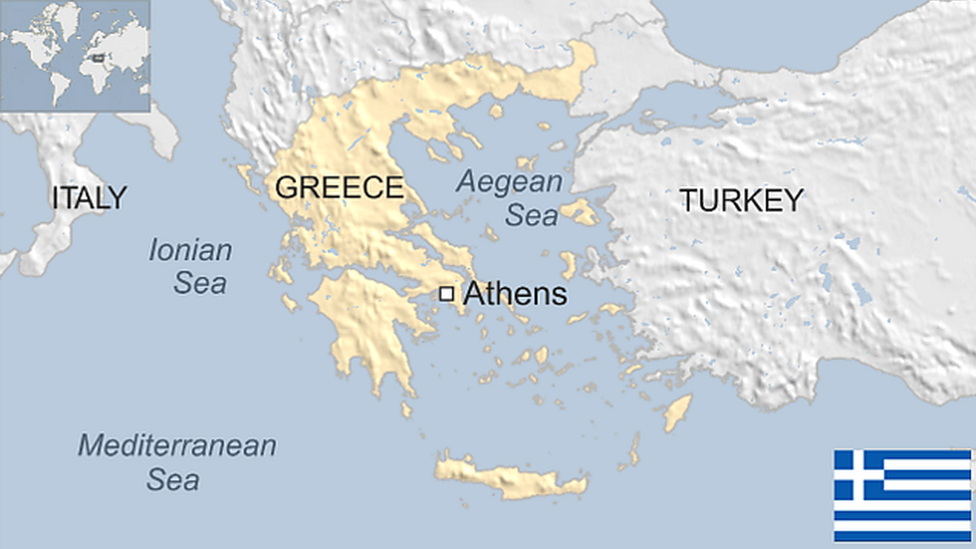Turkey's Erdogan calls for border treaty review in Greece visit
- Published
Greeks react to the rare visit by a Turkish leader
The first visit to Greece by a Turkish head of state in 65 years has got off to a tense start, with President Recep Tayyip Erdogan and his host swapping pointed remarks.
Mr Erdogan said the 1923 treaty that settled Turkey's borders after World War One was not being applied fairly.
But Greek President Prokopis Pavlopoulos rejected any change to the Treaty of Lausanne.
Relations between the two Nato members have been uneasy for decades.
What is the source of the tensions?
Many issues. Long-standing disputes over uninhabited islands in the Aegean brought both countries to the brink of war in 1996.
They have also failed to reach a peace deal in divided Cyprus - the north of the island was invaded by Turkey in 1974 in response to a military coup backed by Athens.

President Pavlopoulos (right) holds talks with President Erdogan in Athens
Turkey also says the rights of the Muslim minority of Turkish origin in north-eastern Greece are not being respected. In Athens, Mr Erdogan said they were not allowed to chose their own mufti, or Islamic legal expert, with the role instead being appointed by Greece.
The Turkish government is also unhappy with Greece's Supreme Court decision that blocked the extradition of eight Turkish soldiers who fled to the country after allegedly participating in last year's failed coup.
Mr Erdogan said he urged the extradition of the group.
Turkey's Gulen supporters seek refuge in Greece
Meanwhile, Greece complains that Turkey has repeatedly violated its air and naval space.
But tensions between these neighbours date back to the 1830s, when Greece won its independence from the Ottoman Empire.
What's happening with the visit?
The blunt exchange over the Treaty of Lausanne happened on the first of a two-day visit by the Turkish leader, during a joint press conference.
Mr Erdogan claimed that the treatment of Muslims in Greece showed that Athens was failing to adhere to the treaty.
"The necessary support is not being provided to them in terms of investments... and there is discrimination going on," he said, complaining also that some points of the treaty needed clarity.
Responding to that, Mr Pavlopoulos - who is also one of Greece's foremost law experts - said: "This treaty, to us, is not negotiable, this treaty does not have any gaps, does not need a review nor an update. This treaty is valid as it is."
Later, Prime Minister Alexis Tsipras said both countries agreed to launch "confidence building measures", and said it was important for them to talk calmly about their different perspectives.
Alongside Mr Erdogan, he added: "We need to express our differences and our disputes in a constructive manner, without hyperbole or provocation, and with respect to the other side's opinion."

Despite the tensions, analysts say Mr Erdogan (left) has a relatively warm relationship with Mr Tsipras
The visit, described by Mr Erdogan as "historic", is taking a place amid a major security operation.
Both governments hope the visit will mark a new chapter in bilateral relations, with joint infrastructure projects being signed off, the BBC's Mark Lowen reports from Athens.
- Published24 March

- Published22 August 2023

- Published28 June 2023
